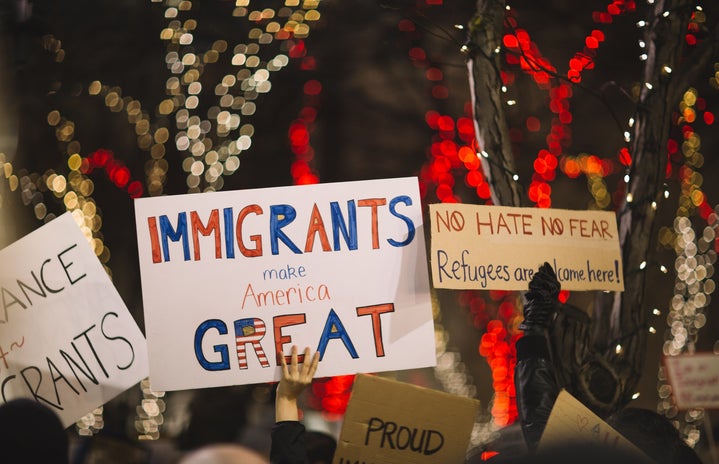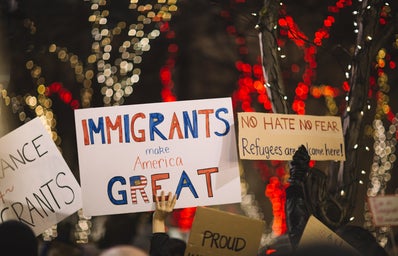18th December marked International Migrants Day. It was a day that called for a more compassionate and humane understanding of this age-old phenomenon and advocates for the protection of migrant’s rights, something we are veering further and further away from in the UK. This erosion of migrants rights was more recently marked by the passing of the Nationality and Borders Bill on the 8th of December, which boasted the most significant overhaul of the asylum system in decades.
In what has been called the ‘biggest legal assault on international refugee law ever seen in the UK’, the bill would allow the Home Secretary to strip a naturalised British Citizen of their citizenship without any notice at all. This ability to deem a citizen stateless would apply to naturalised British people who have secured their citizenship through immigration, thus effectively creating a ‘second class citizen’. As the Independent’s Ian Dunt describes: ‘The government will insist that these powers are just to stop terrorists and jihadists. But in reality, they apply much more broadly than that. If you were born overseas, or one of your parents was, or an aunt, or a friend – it affects you. Anyone who arrived in Britain as an immigrant and then became a citizen comes under these provisions. They can have their status removed from them at a whim, without notification and with no real right of appeal.’ This second class of citizens are predominantly ethnic minorities as the ‘most common applications for citizenship are from Pakistanis, Indians and Nigerians’, thus meaning that non-white British people would be those who are having to face the effects of Clause 9.
The legislation is not to make the ‘system fairer and more effective’ as the government claims. Instead, its aim is to send a strong anti-migration message not only to potential migrants but also to the public. The objective is to signify the Tories’ tough stance on immigration control and whip up divisive and hateful sentiments, often to distract from their other failings. Alongside being marginalised through such sentiments, migrants are also made to suffer at the hands of a ‘hostile’ environment that explicitly aims to make their lives difficult. Female migrants are vulnerable to gender-based violence and LGBTQ+ refugees suffer from a lack of support from the immigration system and diaspora migrant communities. Instead of criminalising those who seek refuge on our shores, we should treat them with respect and decency and question why we feel threatened by them. We need an intelligent approach that seeks to understand the effects of colonialism and capitalism that drive people to migrate. We need a discussion of how borders uphold racial hierarchies which see certain migrants as more ‘worthy’ or ‘valuable’, and we need to seek awareness about the growing border industrial complex which seeks to profit from those seeking a better life. It is vital to ensure that the rights and dignity of those who choose to undertake such journeys are protected. Migration has occurred for the majority of human history and will continue to do so.


